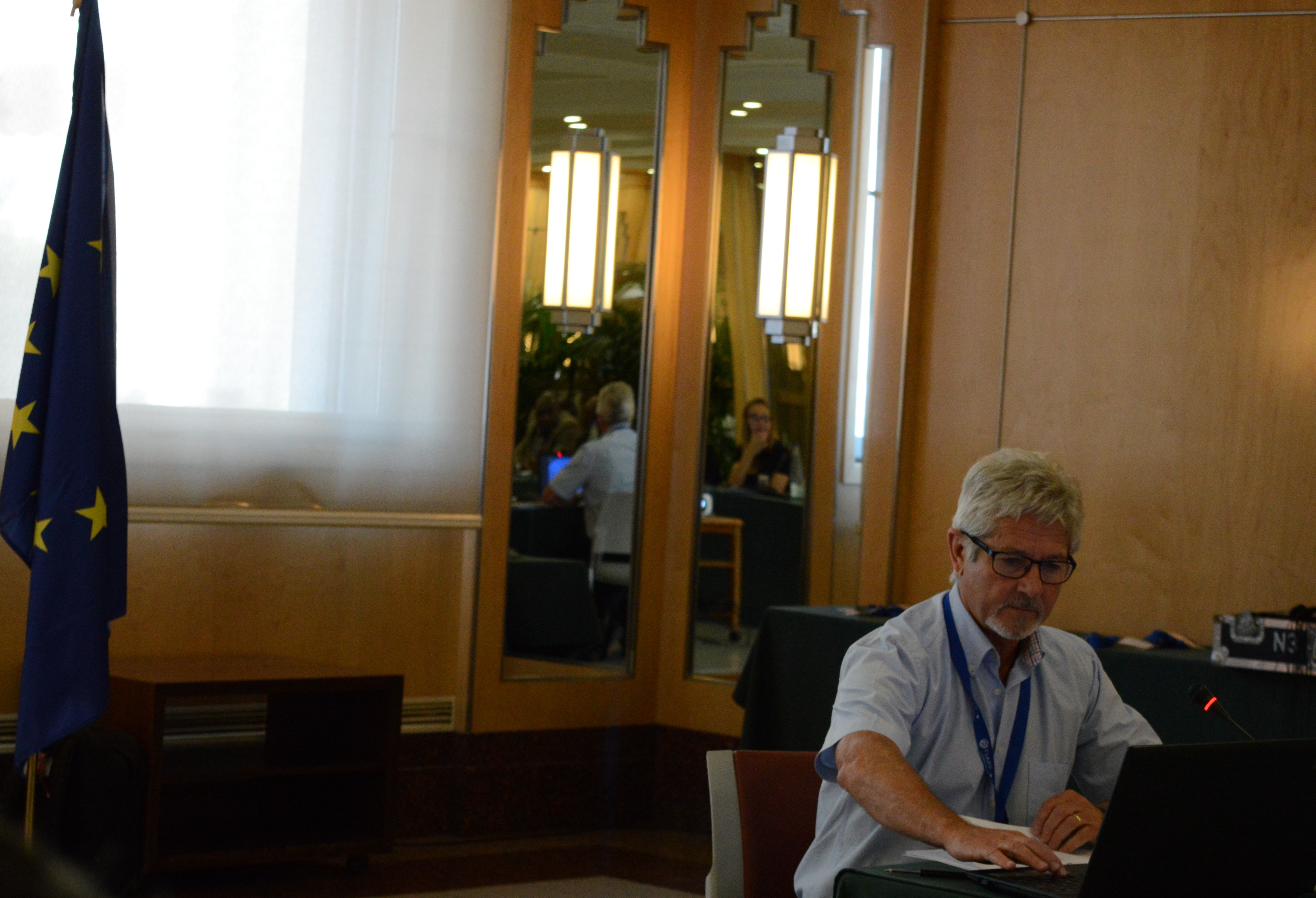-
30 August 2016
Category : Interview
“The drug-trafficking business has negative effects on the population”
After a long professional career working in customs and border matters at the National Crime Agency (NCA), Geoff took over the reins of SEACOP a year ago, a project he helped form seven years prior.

Where did the idea for the SEACOP project come from?
The idea arose in 2000, but it was in 2009 that the European Commission put together a small group of experts from the Commission itself and proposed that we travel to South America and the Caribbean to identify ways and suggest ideas on how to stop the flow of drugs from South America to Europe.
So we started with a blank slate, and our role as European experts was to come up with and offer ideas on how we could do what had not been done earlier to stop the flow of cocaine.
How were these ideas generated to implement the project?
The experience was fantastic. The leader of this group of experts was an anti-drug prosecutor from the Spanish National Court; I was the British expert; and there were also Italian and Portuguese experts in the group. Together we went to South America.
We could choose the countries, so we went to Colombia, Venezuela, Brazil, Panama, and, in the Caribbean, Barbados. All of us contributed ideas based on the flaws that existed in each country’s defence systems in stopping the flow of drugs. My contribution was in the maritime part, because most drug shipments from South America to Europe go by sea, and experience and capacities for stopping it are greatly lacking, both in South America and in Europe and Africa.
Other members of the group had different ideas. The prosecutor, for example, proposed improving judicial collaboration systems. Each member proposed their own. And, as a group of experts, we offered five or six plans.
After a while, they told me that they had liked my idea and asked me if I could develop it further, thinking of starting work first in Africa and later in South America and the Caribbean.
Once my idea was developed, they sent one Portuguese, one French, one Spanish expert and I to Africa to “flesh it out” and, out of that, came SEACOP.
I had to give a presentation in Brussels on how the project should be and the four phases of SEACOP, which are: To create units in ports, create intelligence units, have better maritime information systems, and international collaboration. These are the four pillars of the project.
All of this was presented in Brussels in mid-2009. It was approved and Phase I began, in Cape Verde, Senegal and Ghana.
What has being part of Phase I and Phase II meant to you as a professional?
At the time I was still working for the National Crime Agency (NCA) and couldn’t dedicate myself to the project. For me it was fantastic to be part of the launch of the project, because I’ve spent a large part of my career working to fight maritime drug trafficking. I worked for nine years in South America and later in the United States and the Caribbean, and in recent years in Spain. A large portion of this was working with these countries to stop maritime cocaine trafficking.
How can citizens benefit from a project like SEACOP?
The most important thing is to dismantle the criminal organisations. The drug-trafficking business, like any type of organised crime, has negative effects on the population, even if they’re not always very apparent. In the case of South America, drug trafficking leads to crime. Sometimes traffickers pay people with drugs, and so there is much more addiction, in addition to the violence, massacres, disorder and institutional corruption. Therefore, the impact of cocaine trafficking on the population is enormous. As we all know, drug trafficking destroys governments and societies; its impact in South America and Central America is enormous, but consumption is also growing a great deal in Africa because of the increasing flow to this continent, and consequently to Europe.
Thus stopping the flow of cocaine and dismantling the organisations will have long-term benefits for the population.
What are the differences in this phase compared to the previous one?
The first two phases were focused on Africa, on seven countries. The third phase is focused on the Caribbean. The big difference is that we are placing more emphasis on the intelligence and international collaboration part. We have created 11 maritime intelligence groups that cover the entire Caribbean. In addition, we have provided communications systems so that the groups can exchange information.
Geoff Chalder, is the Team Leader of the third and fourth phases of SEACOP, a cooperation project to fight maritime drug trafficking, funded by the European Commission and managed by FIIAPP.
The views and opinions expressed in this blog are the sole responsibility of the person who write them.




